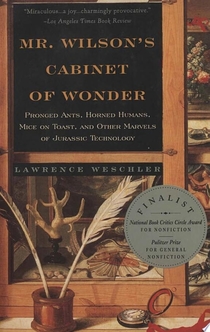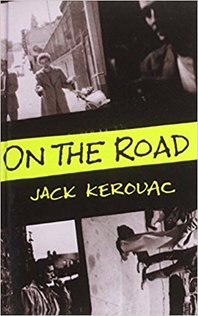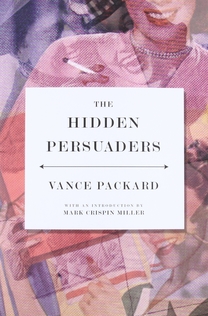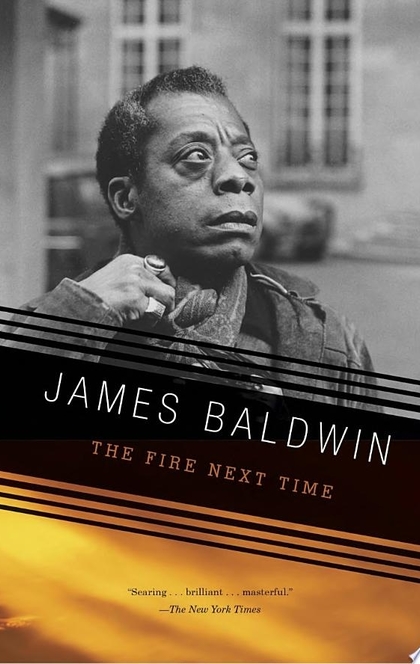
Mr. Wilson's Cabinet Of Wonder
Finalist for Pulitzer Prize for General NonfictionFinalist for National Book Critics Circle Award for NonfictionPronged ants, horned humans, a landscape carved on a fruit pit--some of the displays in David Wilson's Museum of Jurassic Technology are hoaxes. But which ones? As he guides readers through an intellectual hall of mirrors, Lawrence Weschler revisits the 16th-century "wonder cabinets" that were the first museums and compels readers to examine the imaginative origins of both art and science.
See all

On the Road
On the Road swings to the rhythms of 1950s underground America, jazz, sex, generosity, chill dawns and drugs, with Sal Paradise and his hero Dean Moriarty, traveller and mystic, the living epitome of Beat. Now recognized as a modern classic, its American Dream is nearer that of Walt Whitman than Scott Fitzgerald, and it goes racing towards the sunset with unforgettable exuberance, poignancy and autobiographical passion.Contains an introduction by Ann Charters, as well as suggestions for further reading of acclaimed criticisms and references.
See all

Maldoror (Les Chants de Maldoror)
"Are the dynamics of contention changing? This is the question confronted by the contributors of this volume, some of the most influential scholars in the field of social movements. The answers, arriving at a time of extraordinary worldwide turmoil, not only provide a wide-ranging and varied understanding of how social movements arise and persist, but also engender unanswered questions, pointing to new theoretical strands and fields of research. The Future of Social Movement Research asks: How are the dynamics of contention shaped by globalization? By societies that are becoming increasingly more individualized and diverse? By the spread of new communication technologies such as social media, cell phones, and the Internet? Why do some movements survive while others dissipate? Do local and global networks differ in nature? The authors' essays explore such questions with reference to changes in three domains of contention: the demand of protest (changes in grievances and identities), the supply of protest (changes in organizations and networks), and how these changes affect the dynamics of mobilization. In doing so, they theorize and make empirically insightful how globalization, individualization, and virtualization create new grievances, new venues for action, new action forms, and new structures of contention. The resulting work--brought together through engaging discussions and debates between the contributors--is interdisciplinary and unusually broad in scope, constituting the most comprehensive overview of the dynamics of social movements available today. Contributors: Marije Boekkooi, VU-U, Amsterdam; Pang Ching Bobby Chen, U of California, Merced; Donatella della Porta, European U Institute; Mario Diani, U of Trento, Italy; Jan Willem Duyvendak, U of Amsterdam; Myra Marx Ferree, U of Wisconsin-Madison; Beth Gharrity Gardner; Ashley Gromis; Swen Hutter, U of Munich; Ruud Koopmans, WZB, Berlin; Hanspeter Kriesi, U of Zurich; Nonna Mayer, National Centre for European Studies; Doug McAdam, Stanford U; John D. McCarthy, Pennsylvania State U; Debra Minkoff, Barnard College, Columbia U; Alice Motes; Pamela E. Oliver, U of Wisconsin-Madison; Francesca Polletta, U of California, Irvine; Jacomijne Prins, VU-U, Amsterdam; Patrick Rafail, Tulane U; Christopher Rootes, U of Kent, Canterbury; Dieter Rucht, Free U of Berlin; David A. Snow, U of California, Irvine; Sarah A. Soule, Stanford U; Suzanne Staggenborg, U of Pittsburgh; Sidney Tarrow, Cornell U; Verta Taylor, U of California, Santa Barbara; Marjoka van Doorn; Martijn van Zomeren, U of Groningen; Stefaan Walgrave, U of Antwerp; Saskia Welschen."--
See all

Flaubert's Parrot
Shortlisted for the Man Booker Prize for FictionFlaubert's Parrot deals with Flaubert, parrots, bears and railways; with our sense of the past and our sense of abroad; with France and England, life and art, sex and death, George Sand and Louise Colet, aesthetics and redcurrant jam; and with its enigmatic narrator, a retired English doctor, whose life and secrets are slowly revealed. A compelling weave of fiction and imaginatively ordered fact, Flaubert's Parrot is by turns moving and entertaining, witty and scholarly, and a tour de force of seductive originality.
See all

The Trial of Henry Kissinger
'A good liar must have a good memory: Kissinger is a stupendous liar with a remarkable memory.' Christopher HitchensChristopher Hitchens goes straight for the jugular in The Trial of Henry Kissinger. Under his fearsome gaze, the former Secretary of State and National Security Advisor is accused of being a war criminal whose reckless actions and heinous disregard for international law have led to torture, kidnapping, and murder.This book is a polemical masterpiece by a man who, for forty years, was the Angloshpere's preeminent man of letters. In The Trial of Henry Kissinger, Hitchens' verve, style and firebrand wit are on show at the height of their potency.'This is a disturbing glimpse into the dark side of American power, whose consequences in remote corners of the globe are all too often ignored. Its countless victims have found an impassioned and skilful advocate in Christopher Hitchens.' - Sunday Times
See all

The Collected Poems of Frank O'Hara
Available for the first time in paperback, The Collected Poems of Frank O'Hara reflects the poet's growth as an artist from the earliest dazzling, experimental verses that he began writing in the late 1940s to the years before his accidental death at forty, when his poems became increasingly individual and reflective.
See all

The Fire Next Time
A national bestseller when it first appeared in 1963, The Fire Next Time galvanized the nation and gave passionate voice to the emerging civil rights movement. At once a powerful evocation of James Baldwin's early life in Harlem and a disturbing examination of the consequences of racial injustice, the book is an intensely personal and provocative document. It consists of two "letters," written on the occasion of the centennial of the Emancipation Proclamation, that exhort Americans, both black and white, to attack the terrible legacy of racism. Described by The New York Times Book Review as "sermon, ultimatum, confession, deposition, testament, and chronicle...all presented in searing, brilliant prose," The Fire Next Time stands as a classic of our literature.
See all

The Hidden Persuaders
The first book to expose how advertising and media attempts to control our thoughts and desires.









